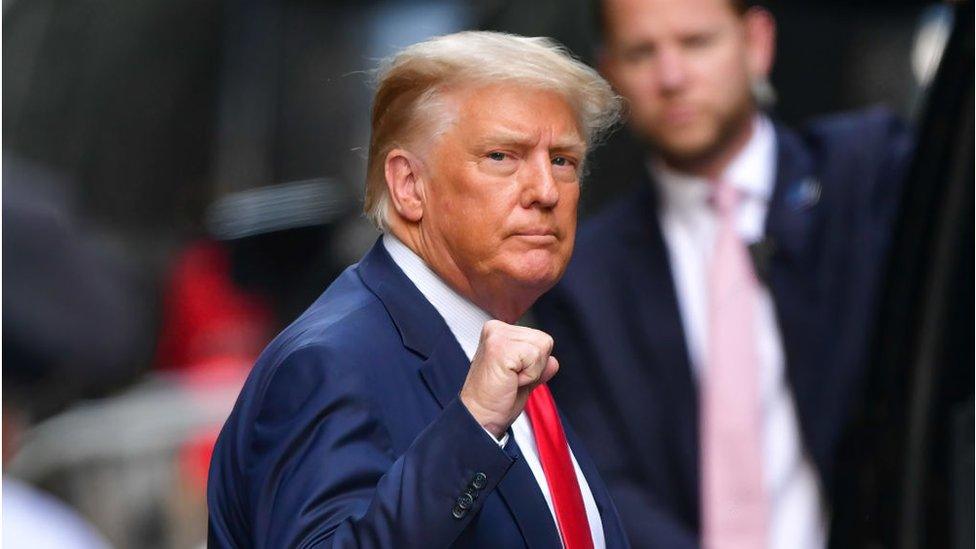Capitol riot: Democrats set up committee to probe 6 January attack
- Published
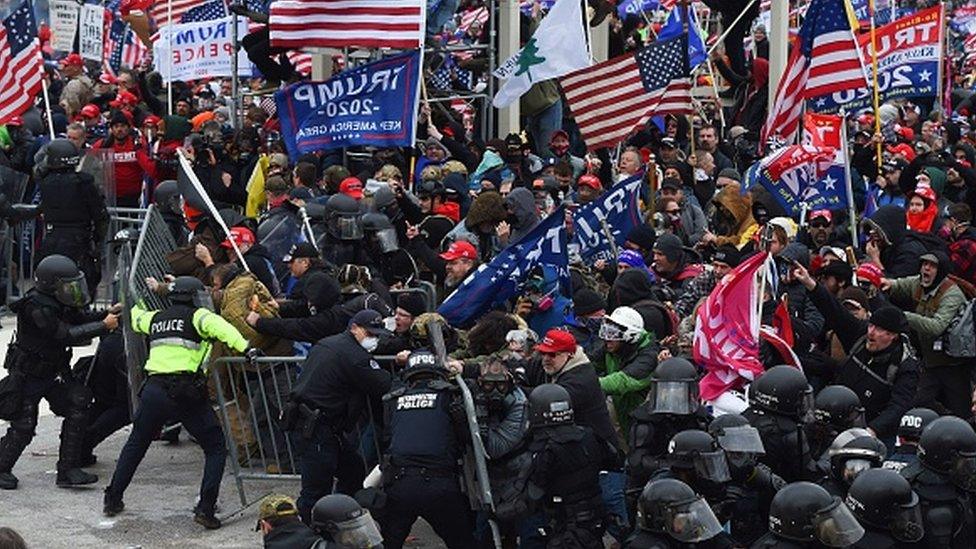
Democratic House Speaker Nancy Pelosi has announced the creation of a committee to investigate the Capitol Hill riot in January this year.
Mrs Pelosi said the Democratic-led committee would aim to "establish the truth of that day and ensure that an attack of that kind cannot happen".
The move comes after Senate Republicans blocked a bill to establish a bipartisan commission into the attack.
Allies of former President Donald Trump said a commission was not necessary.
His supporters stormed Congress in Washington DC on 6 January in a failed bid to overturn the certification of Democratic President Joe Biden's election victory in November.
The assault led to the political impeachment and acquittal of Republican Mr Trump, who was accused by lawmakers of inciting the riot.
What will the committee do?
It will "investigate and report on the facts and the causes of the attack and it will report recommendations for the prevention of any future attack," Mrs Pelosi said at a news conference on Thursday.
"The timetable will be as long as it takes," Mrs Pelosi said.
The structure, powers and members of the committee will be announced at a later date, she said.
The committee will be controlled by Democratic lawmakers in the House of Representatives, the lower legislative chamber of Congress.
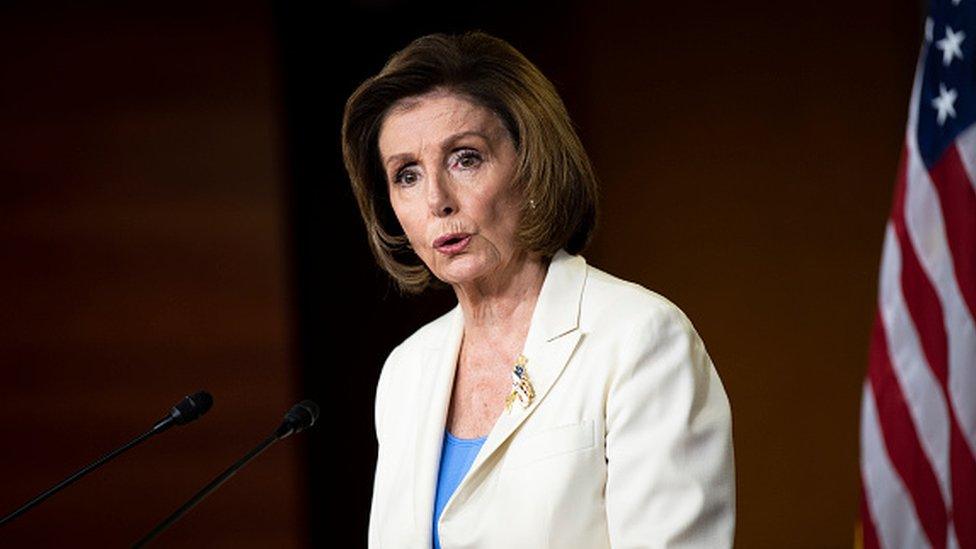
House Speaker Nancy Pelosi said the committee would aim to "establish the truth" of the events on 6 January
Mrs Pelosi said she and her Democratic colleagues "see this as complementary, not instead of" an independent commission into the events of 6 January.
She had hoped to avoid forming a committee that put Democrats in charge of the investigation.
It is not clear how much support the investigation will receive among House Republicans, who may see it as an overtly political process.
Earlier this week, Republican House Minority Leader Kevin McCarthy said whatever decision Mrs Pelosi made about a committee would be "political".
This charge of partisanship is why Democratic lawmakers had sought to legislate for an independent investigation modelled on the commission into the 11 September 2001 attacks on the US.
Democrats argued that forming a commission would prevent any repeat of a similar invasion on the Capitol.

Committee vs commission: Expect findings, regardless

For weeks Nancy Pelosi has been telegraphing that she would create a special congressional committee to investigate the attack.
After Senate Republicans banded together to block an independent commission, a "select committee" was her most obvious play.
It will allow her to hand pick the participants of the investigating body, rather than rely on an existing congressional committee whose membership is already determined. It will also, of course, permit the Republican leadership to pick its members - virtually guaranteeing the presence of some of the more pugnacious conservatives, such as Jim Jordan of Ohio.
Republicans are already accusing Democrats of making this investigation a partisan affair - a criticism that could have been defused under an independent commission. Instead, this may more resemble the committee investigating the 2012 attack on the US consulate in Benghazi, which held days of hearings.
That investigation was also dismissed as a partisan inquisition, but it did unearth the existence of the private email server Hillary Clinton used as secretary of state - a revelation that would eventually take a political toll.

Many Republicans fear an investigation could be used to damage them politically before important 2022 congressional elections, known as the midterms.
When a mob stormed the US capitol
In the Senate last month, six Republicans broke ranks and voted with Democrats to launch the commission, but it was four short of the number needed to advance the bill.
The vote to reject the bipartisan commission was seen as a test of Republican loyalty to Mr Trump.
He still wields significant influence among Republican lawmakers and is widely tipped to run for the next presidential election in 2024.
A Senate report released earlier this month touched on security and intelligence failures surrounding the attack but, notably, did not discuss the role of Mr Trump.
Related topics
- Published8 June 2021
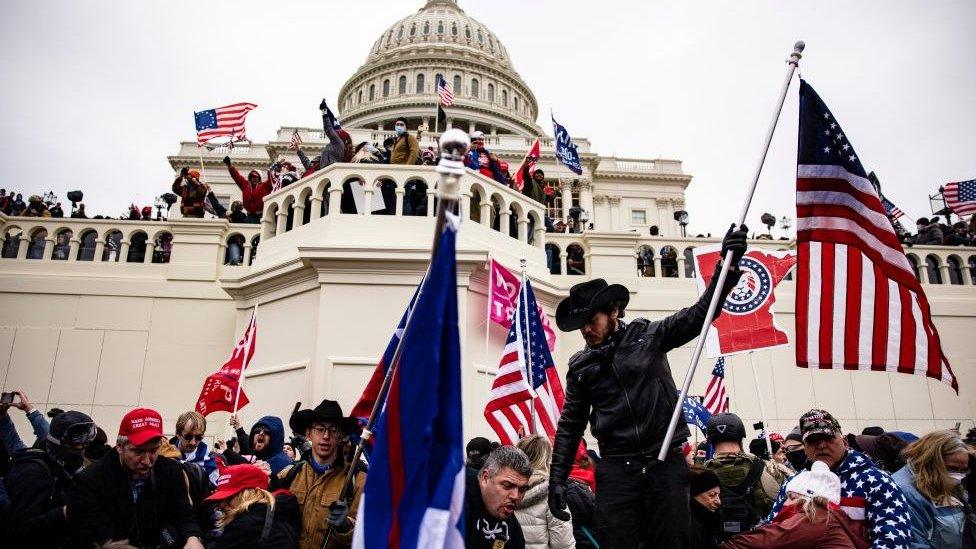
- Published28 May 2021
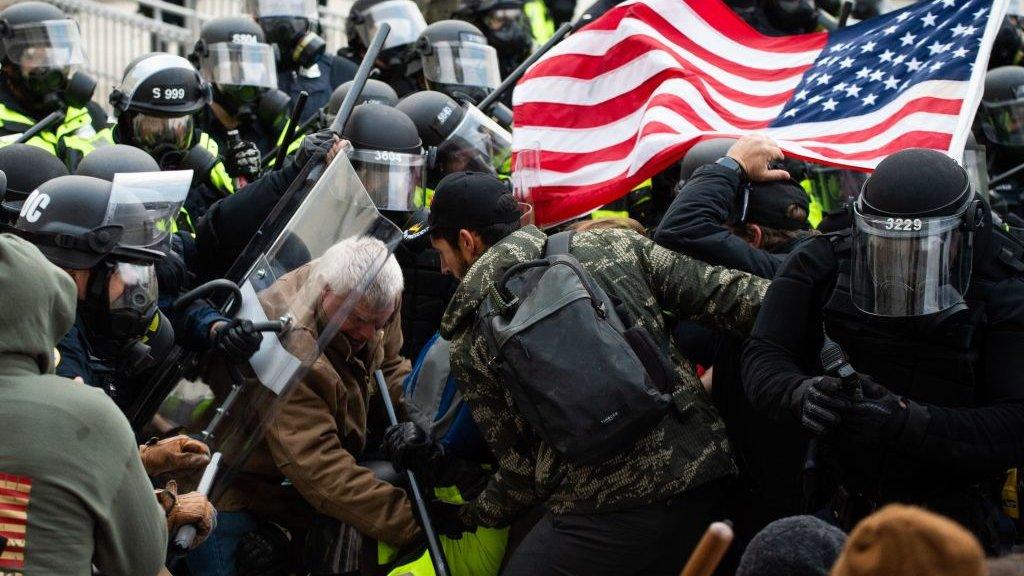
- Published20 May 2021
